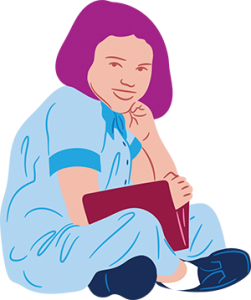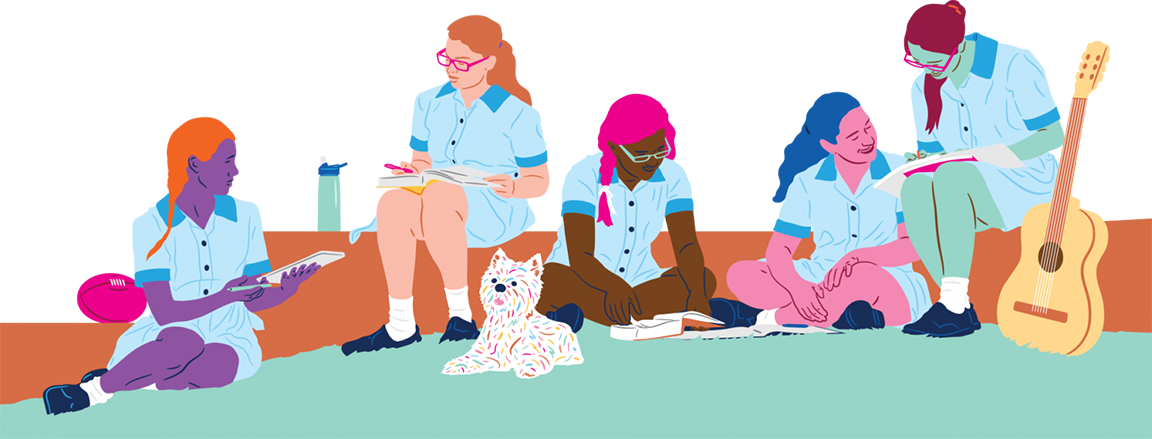The Principal outlines the School’s updated Smart Devices Policy and our commitment to digital wellbeing through clear and consistent smart device expectations across the School.
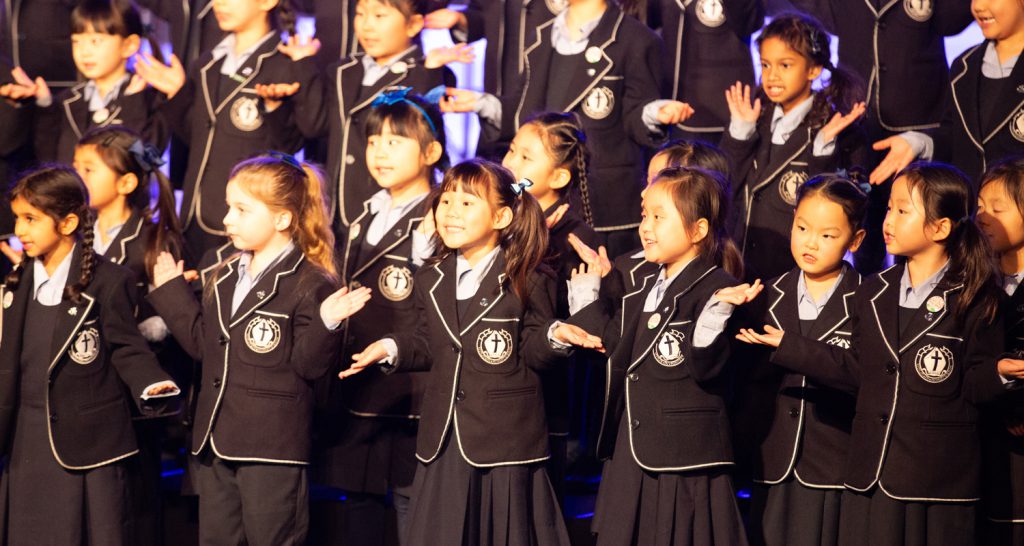
It was a pleasure visiting 4 of our Year 6 students who were competing at the E-Sports FUSE Cup at Kilvington Grammar School last week. Congratulations to Teanna D, Ivy X, Stephanie M and Alice X. This e-sports event involved each of the students competing against other schools in Just Dance. This activity requires each student to look closely at a screen and copy the dance moves of the dancer in front of them. Twelve schools competed on the day and Ormiston came a very respectable third place. All 4 students did an excellent job and Ivy X was player of the FUSE Cup tournament and was invited to compete later in the year at a National Tournament. I would like to thank the 4 students who competed and the CGGS staff members Sam Fitzgerald and Mark Major for their coaching throughout the year.
I would like to wish our Ormiston school community a very relaxing school holiday break. After a long but very rewarding Term 2, both students and staff are ready to spend more time with their families for the next 2 weeks. All Early Learning 3 – Year 6 students are required to be back at school on Tuesday 16 July. I look forward to seeing everyone then.
Paul Donohue
Head of Junior School
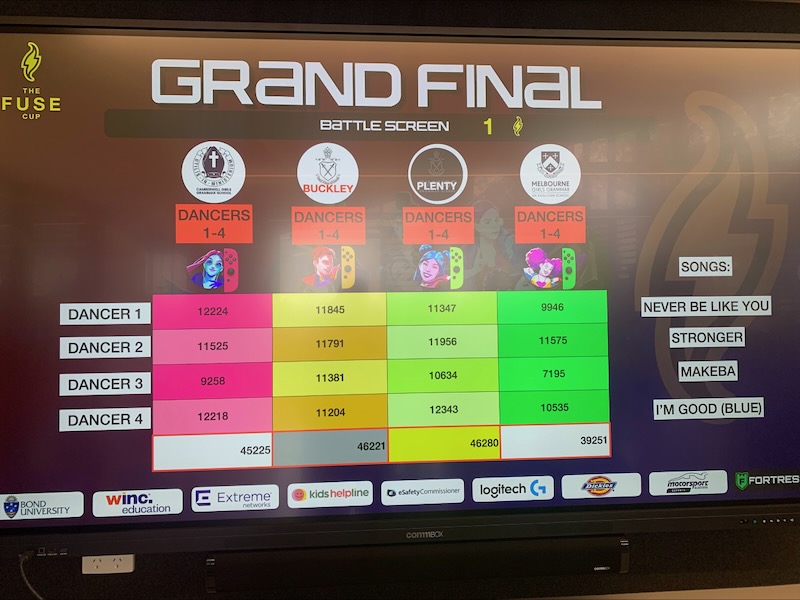
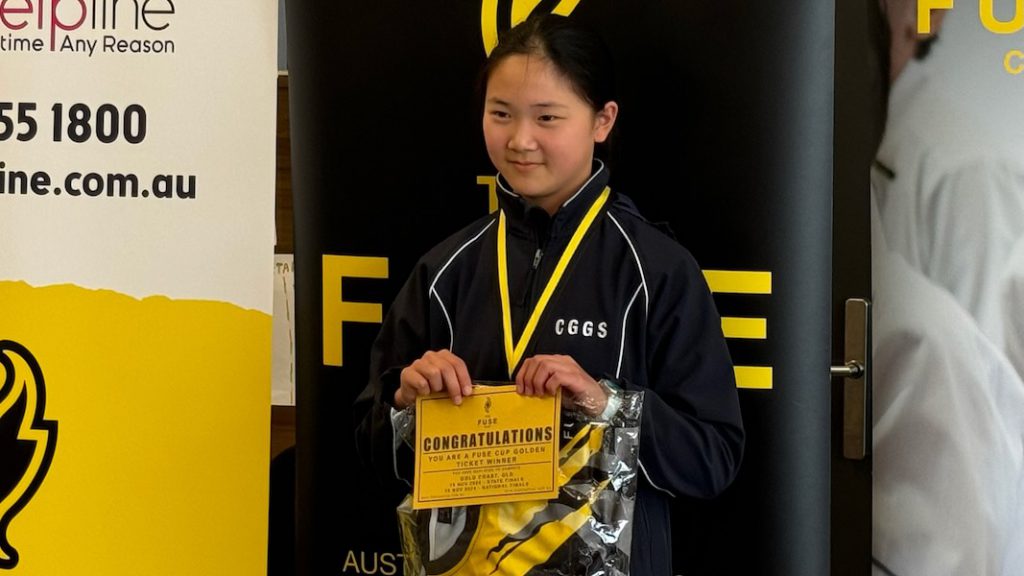
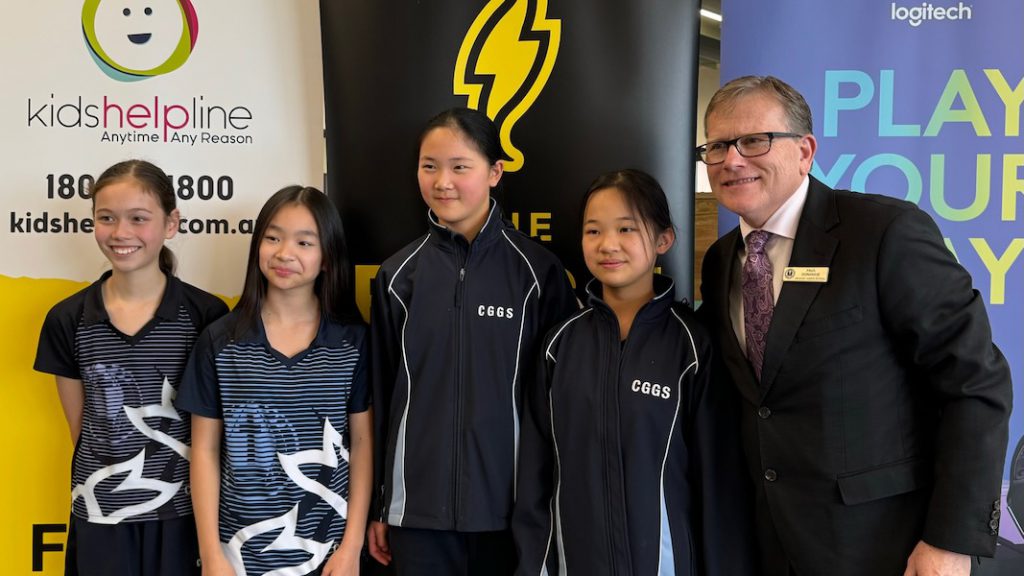
As we approach the end of Term 2, it has been truly wonderful to witness the remarkable growth and development of our students. Throughout the past two terms, our students have built meaningful relationships, engaged enthusiastically in various learning experiences, and demonstrated impressive progress in their academic and social skills. The sense of community and support among our students is a testament to the dedicated efforts of our staff, the partnership with parents, and the collaborative spirit of our school.
Looking ahead to next term, we are excited as an ELC to focus on developing civic responsibility in our young learners. Encouraging students to understand, engage, and be active citizens within their home life, school life, and community is an essential part of their growth.
What does this mean? And what will this look like?
At the heart of nurturing the expectation of children participating in everyday duties lies a consciously guided mind – one that recognises the impact small everyday actions have on children to develop their sense of responsibility, ownership, and leadership to be active members within the home and at school. By fostering a sense of civic duty, we hope to inspire our students to become thoughtful, compassionate, and responsible members of society. In the school environment, this looks like:
Working in partnership with families, we hope to extend these experiences at home, enriching and empowering children to be active members of their households. An article by Andrew Trounson from the University of Melbourne encourages families to help at home to build autonomy and resilience. At home, this might look like:
(Frank, 2023)
These life experiences are about instilling an inherent awareness that their contribution, no matter how small, has the power to collectively shape responsibility, compassion, and intrinsic motivation.
Frank, C. (2023). How can I get my kids to do chores?. Child Mind Institute. https://childmind.org/article/how-can-i-get-my-kids-to-do-chores/
Trounson, A. (2017). Why helping at home is good for kids. University of Melbourne. https://pursuit.unimelb.edu.au/articles/why-helping-at-home-is-good-for-kids
Esther Wong
Early Learning Coordinator
This term In Year 4, our students have been diving into fascinating historical topics. They’ve explored the profound impact of the Industrial Revolution on society, learning how technological advancements transformed daily life. The journey of the First Fleet and its significance has also been a key focus, providing insights into early colonial history. Importantly, students have examined the impact on First Nations Australians, understanding the diverse perspectives and cultural implications of these events. Through examining primary and secondary sources, our young historians have developed critical thinking skills, appreciating the value of different viewpoints and the importance of evidence in understanding the past.
To conclude our unit and to allow the opportunity for students to share their learning, they each wrote a journal entry from the perspective of a First Nations Australian or a convict. Here is Olive’s journal entry written from the perspective of a First Nations Australian:
16 April 1788
Today I want to share my story about the newcomers who have arrived in our land. My name is Kylie. I am 22-year-old member of the Eora people who have lived here for many generations. Six months ago, huge hulks arrived in my home, Botany Bay. Ever since then there have been lots of pale people around. They call themselves the British and have created a settlement on our land.
As I watch these newcomers, I see them chopping down trees, growing crops and constructing houses. This makes me stressed and anxious. They have also brought infections onto our land and has made some of our people very unwell.
The British have taken over some of our meeting spaces, hunting grounds and sacred sites. I am also afraid that we will have no more areas to gather together. Our land, once filled with our voices and traditions, is rapidly changing.
Some challenges I have faced is hunting for food and sometimes the foreigners have called us horrible names. Some of their tools scare away the animals and even makes us frightened.
Even though things are challenging, I am determined to protect our land and family. I hope in the future we can all live in peace with the British. I also wish for there to be no more disease, violence or hate. Our elders, who have always cared for this land, give us courage and hope for a peaceful and caring future.
Anjali de Quadros
Year 4 Classroom Teacher
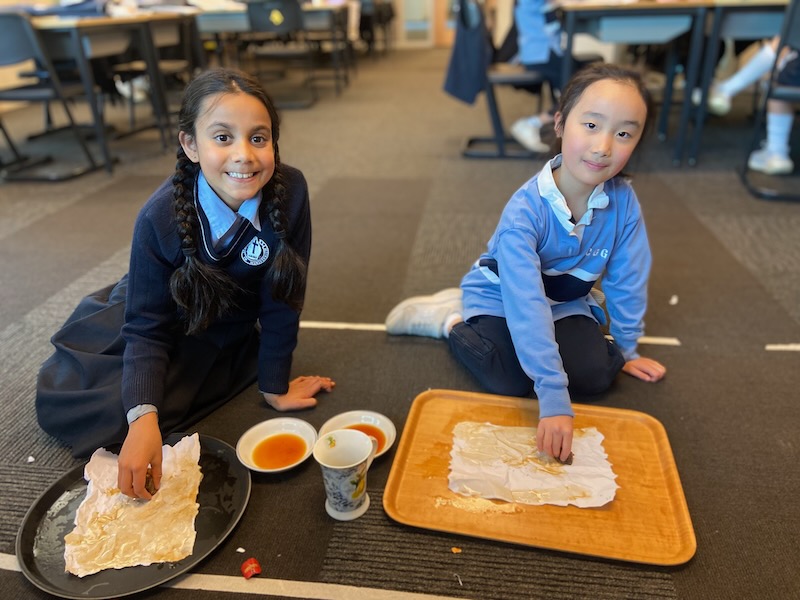
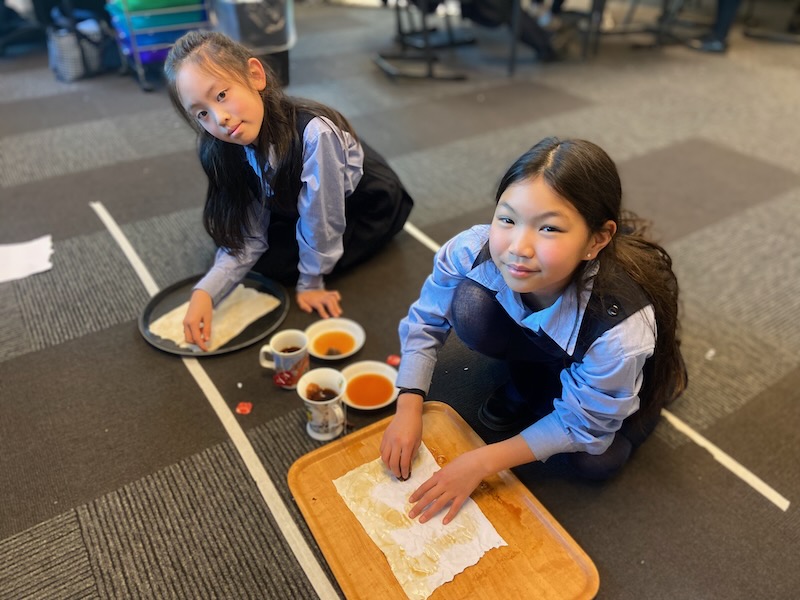
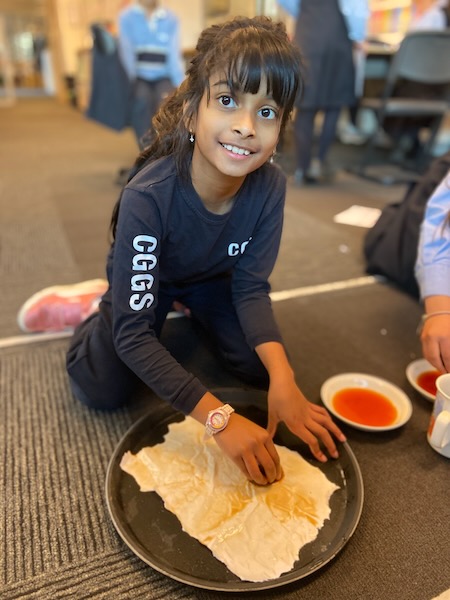
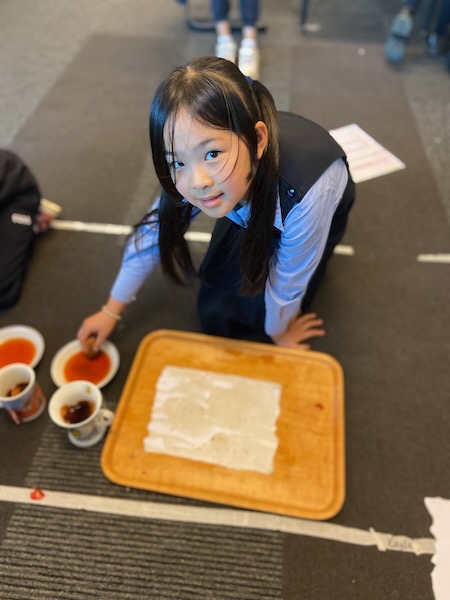
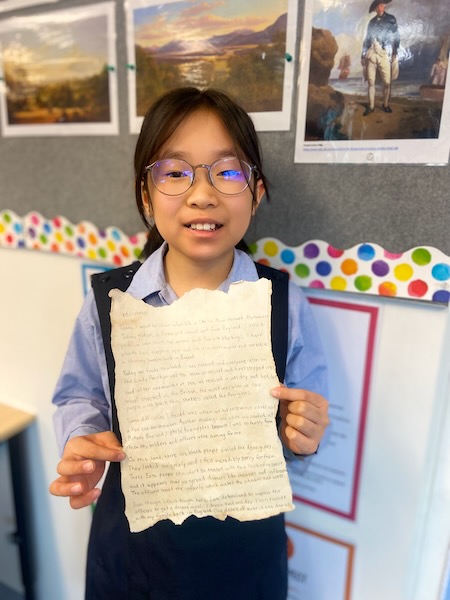
EL3 has demonstrated that when connecting with their environment, their third teacher, they have developed a strong interest in colour. Both informal discussions between children and during our morning meetings have highlighted the children’s desire to explore and experiment with colour. A focus on making predictions and testing our theories about colour mixing has informed our exploration.
What will happen if we mix yellow and blue?
“Green” – Noria, Charlotte, Thomas, Aimee, Tashi
“Black” – Liam
“Pink’ – Evelyn
“Red” – Chelsea, Camille
“Purple” – Freya, Anne, James
What will happen if we mix red and yellow?
“Blue” – Liam, James
“Purple” – Anne
“Pink” – Aimee, Nolan, Tashi, Elsa, Elakiya
“Green” – Evelyn”
What will happen if we mix blue and red?
“Yellow” – Liam, Thomas
“Pink” – Elakiya, Aimee, Tashi
“Purple” – Charlotte
‘Green” – Mia
“Red” – Camille
We then tested our predictions, first as a group and then individually as part of a classroom experience.
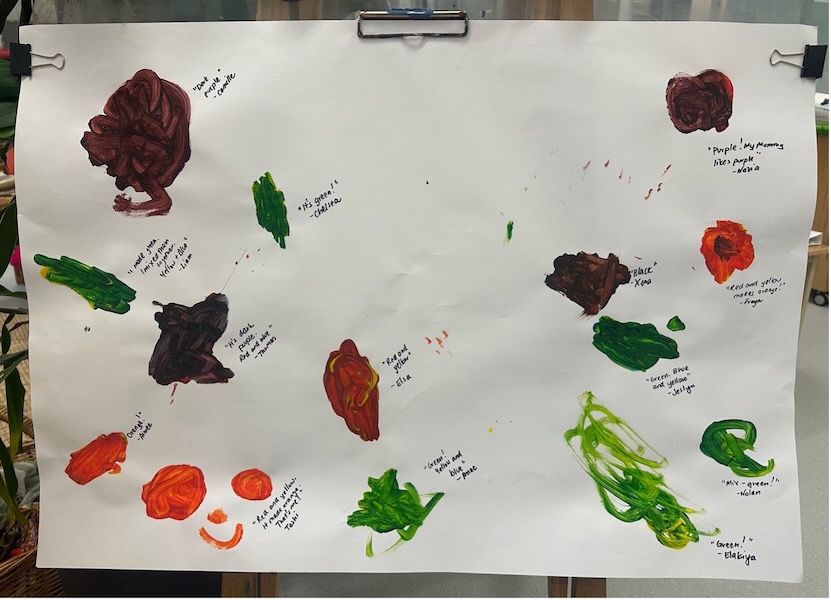
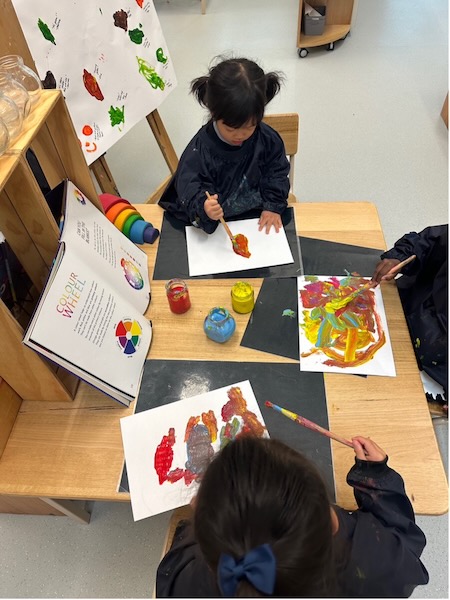
We have observed the children’s knowledge and curiosity increase as we have conducted some experiments, as well as introduce the colour wheel.
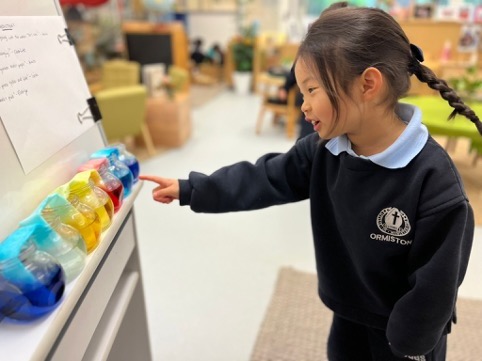
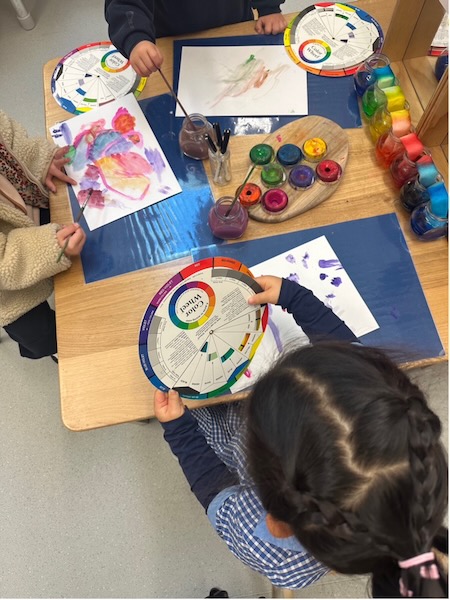
Coloured vinegar, droppers and bicarb soda
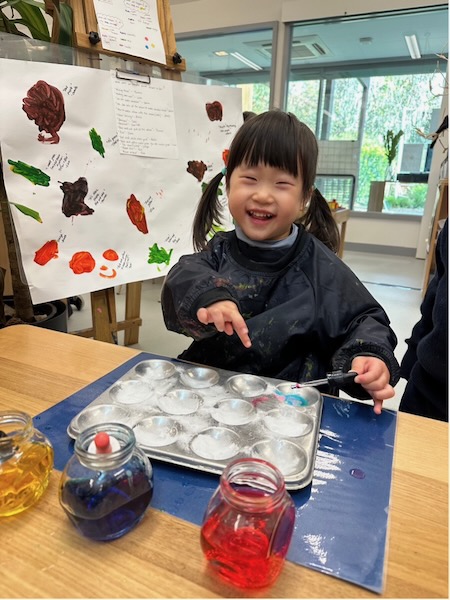
What have we learned about colour so far?
“Mixing them” Thomas
“Making new ones” Liam
“We can mix all the colours to make rainbow slime” Nolan
“How to make colour with the mouse (video)” James
“Colour mixing” Aimee
“Rainbow” Charlotte, Tashi
“Pink” Xena
“Red and white make pink “Noria
“Blue and yellow make green. You can make green” Liam
We are looking forward to next extending our exploration by connecting colour and the natural environment!
Eva Szymanski
Early Learning 3 Classroom Teacher
During this term our Foundation students have been learning about different materials and what objects are made from. This week, the students enthusiastically participated in two activities designed to teach them about plastic and recycling, in the MakerSpace at Secondary School.
In the first activity, students grated, mashed up and strained potato to collect potato starch and make bio plastic. We learnt that potato is a wonderful resource that can be a better solution to avoid landfill.
In the second activity, students sorted bottle caps collected from the community into different graded plastics and by colour. We were able to follow the next process of cutting and melting the bottle tops, watching them turn into new products, including pens, combs and key rings.
Thank you to our wonderful STEAM teacher Ms Penny Dumsday for this incredible hands-on experience and the opportunity to work in the MakerSpace.
“It was fun to grate the potato”. – Reece
“My favourite part was making plastic out of the potatoes because it was fun.” – Chelsea
“The best part was making plastic out of the potatoes because we can make things together.” – Jenny
“I liked to learn about plastic.” – Luna
“I learnt that we can use potatoes to make plastic. I also found out that we can use plastic to make hair combs and keyrings.” – Annie
“I liked everything so much!” – Scarlett X
Mikaela Stanaway & Selena Reedman
Foundation Classroom Teachers
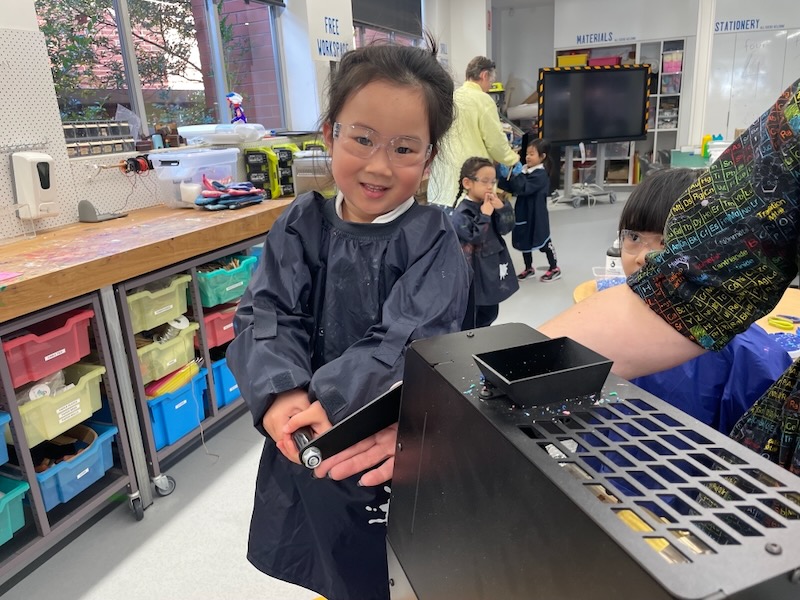
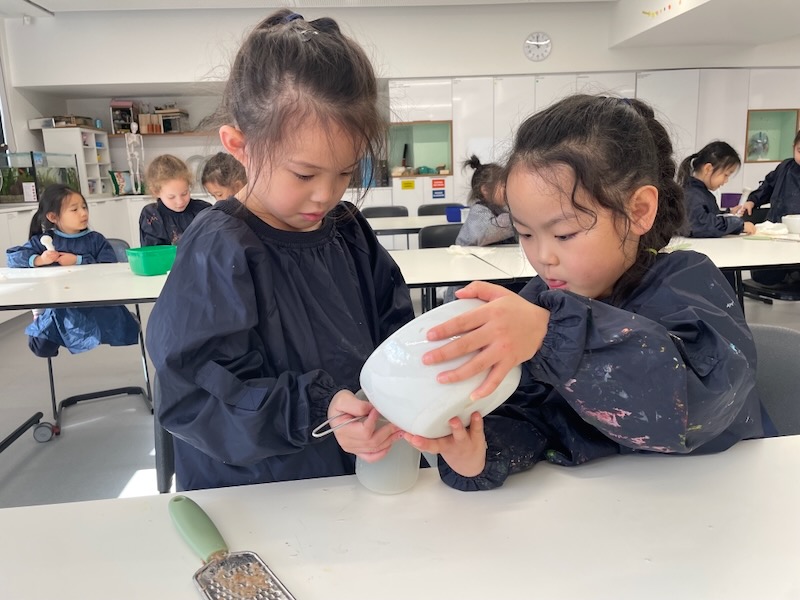
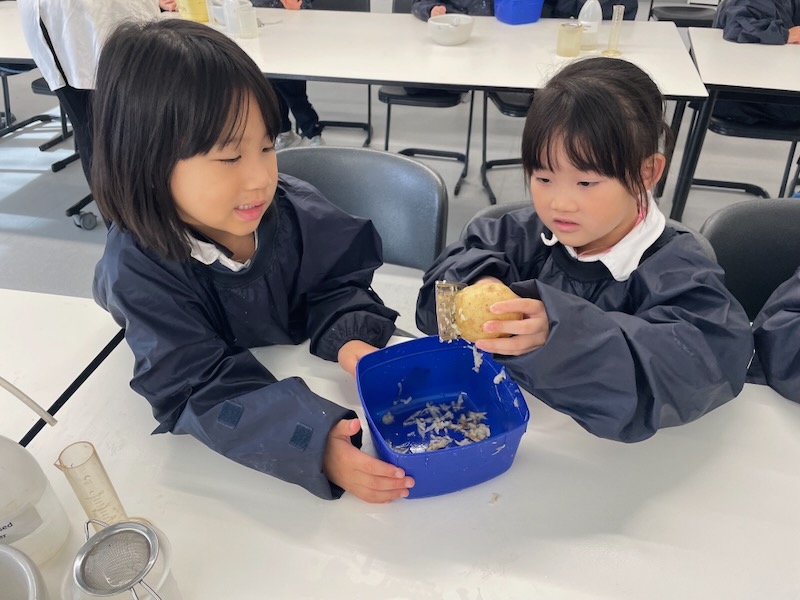
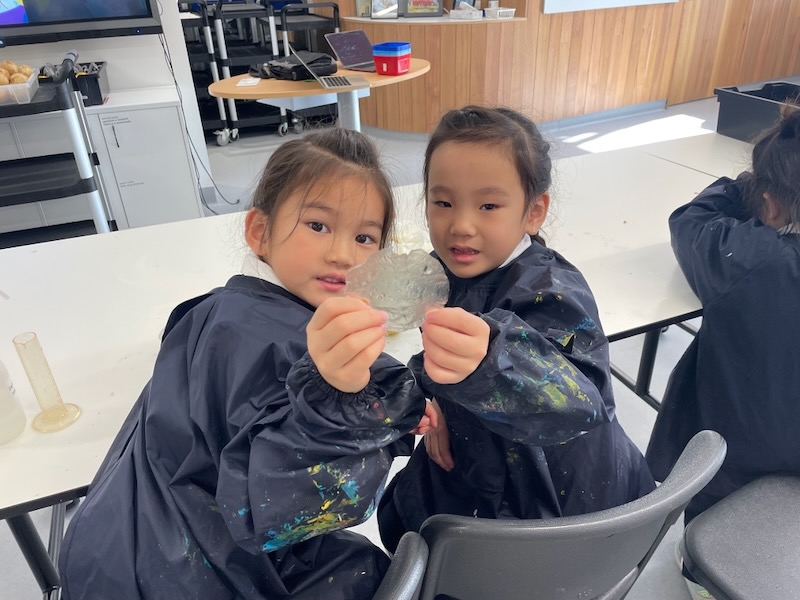
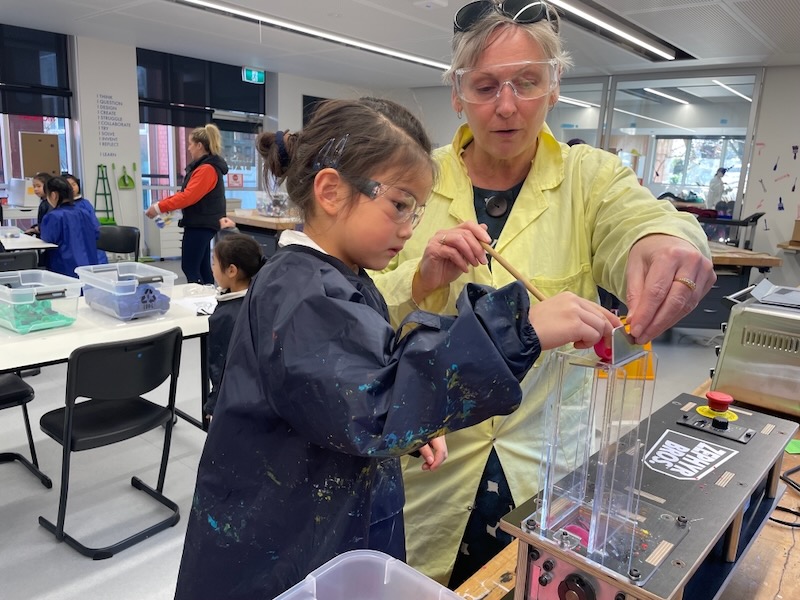
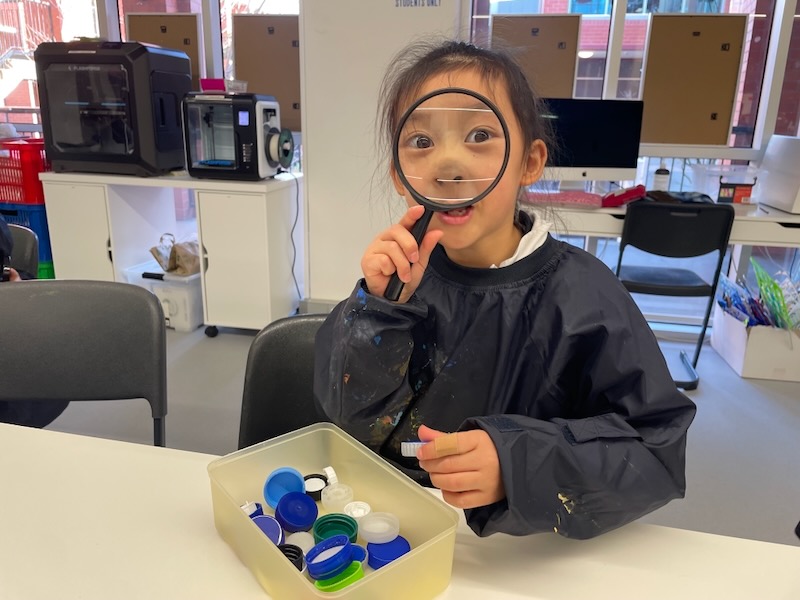
On Thursday 20th June, Ormiston celebrated the Instrumental and Choral Concert in Barbara Sutton Hall. The evening showcased all of our budding young musicians demonstrating their instrumental and vocal talents. Our Music Leaders Kyla C, Catherine C, Joibella F and Ivy X commenced the concert with a Welcome and Acknowledgement of Country, followed by the traditional first performance from our Year 2 Super strings with some funky string playing in ‘Circle madness’ finishing with ‘Hoe Down’.
Then the amazing sounds of the Year 5 and 6 Bands filled the stage with their rendition of ‘Knightly Procession’ and ‘Chaos Mountain’.
Year 4, 5 and 6 students demonstrated great ensemble skills with enjoyable performances by Woodwind Ensemble, Brass Ensemble and our 2 String Quartets.
This year the Choirs are Directed by Ms Renee Heron and accompanied by Mr Tim Mallis. The audience enjoyed an entertaining vocal warm up of the students before listening to some truly beautiful singing.
Junior Strings commenced their performance with a stately ‘March’ from Judas Maccabeus by Handel, followed by lots of Pizzicato in their performance of ‘The Metronome’. Thank you, Mr Mack, for playing the Triangle so well. Chamber Strings then took us on a journey to a faraway place with their haunting performance of ‘Mythos’. Closing the concert was Sinfonia’s impressive performance of ‘Asian Folk Melody’.
A special thank you to all Music staff involved in the evening, especially our wonderful Music Directors’ Kate Savige and Rohan Mack for all their hard work in bringing this special evening together. A special thank you also to our wonderful Music Administrator, Elizabeth Eliopoulos for all her behind the scenes hard work and contributions.
Nichole Adams
Junior School Music Teacher
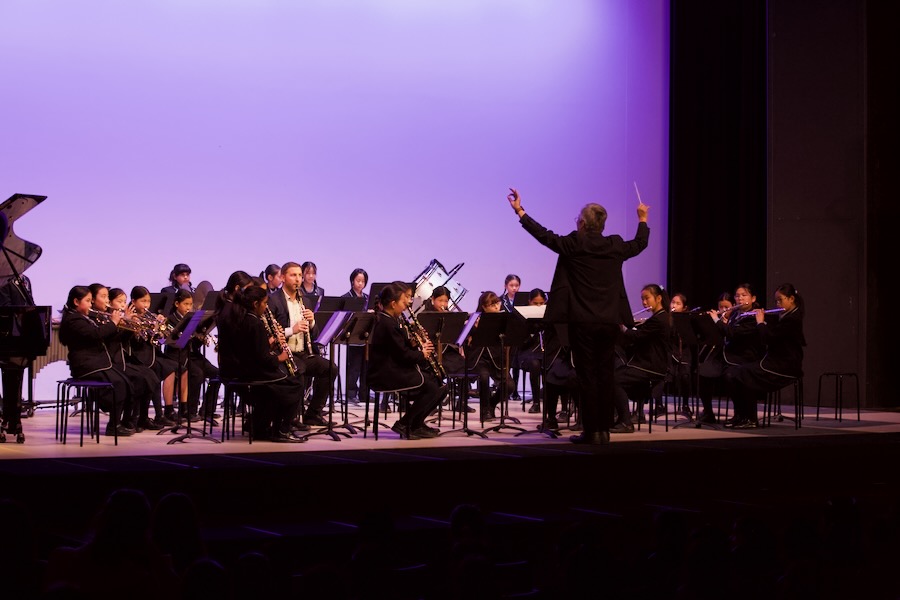
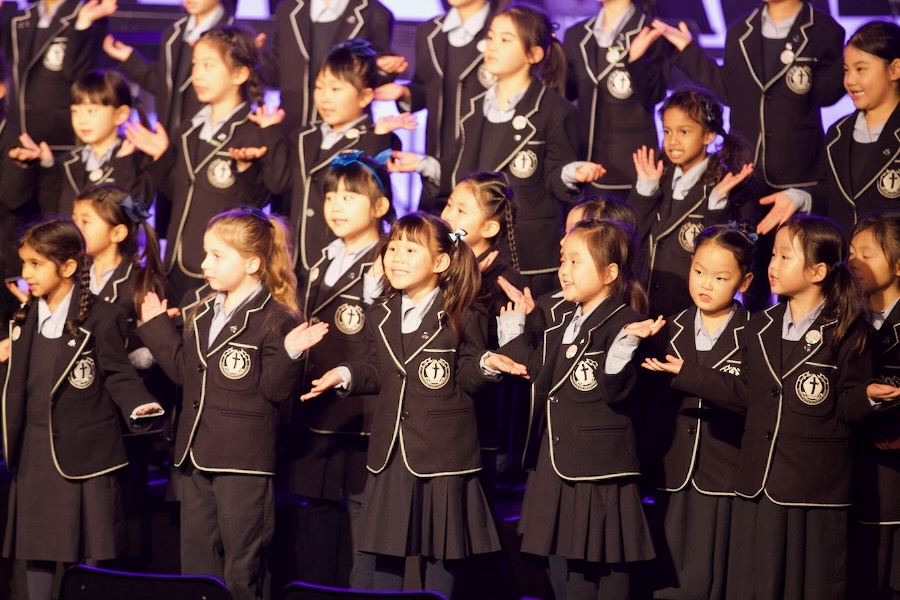
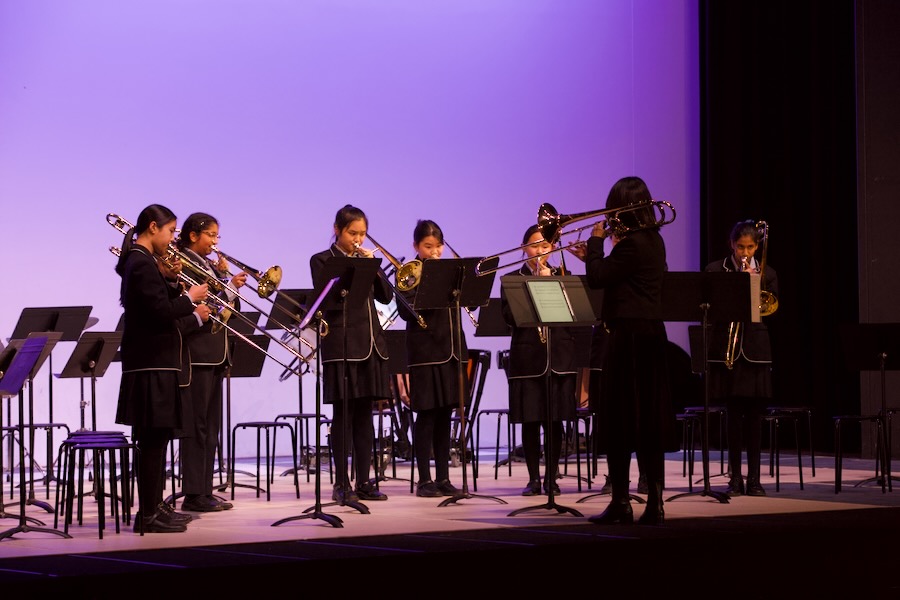
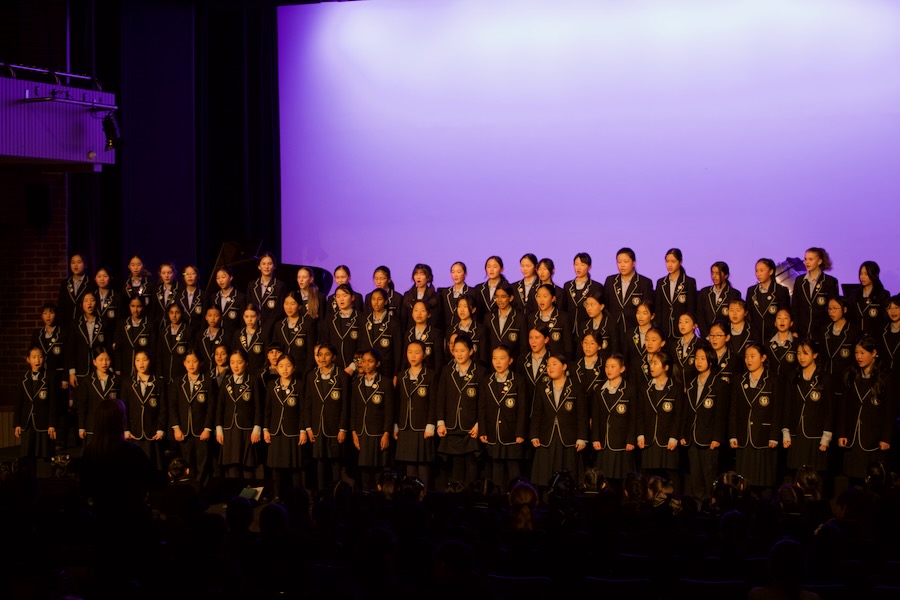
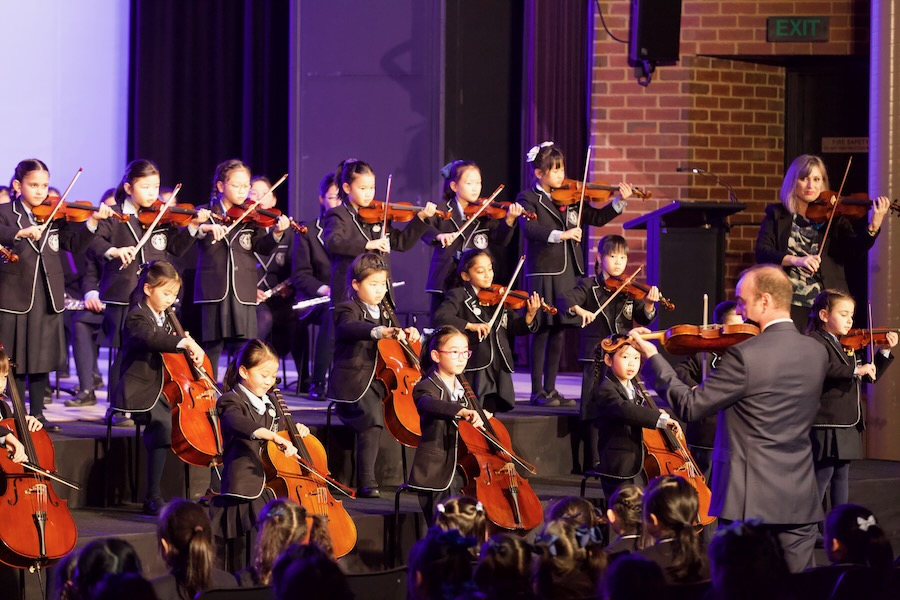
The Principal outlines the School’s updated Smart Devices Policy and our commitment to digital wellbeing through clear and consistent smart device expectations across the School.
The term is in full stride, with students embracing academic challenge, cultural celebration, service, House spirit and sporting excellence across a vibrant start to 2026.
A strong sense of belonging and participation has shaped the start of term, as students embrace leadership, learning, House spirit and opportunities to grow across the Junior School.
